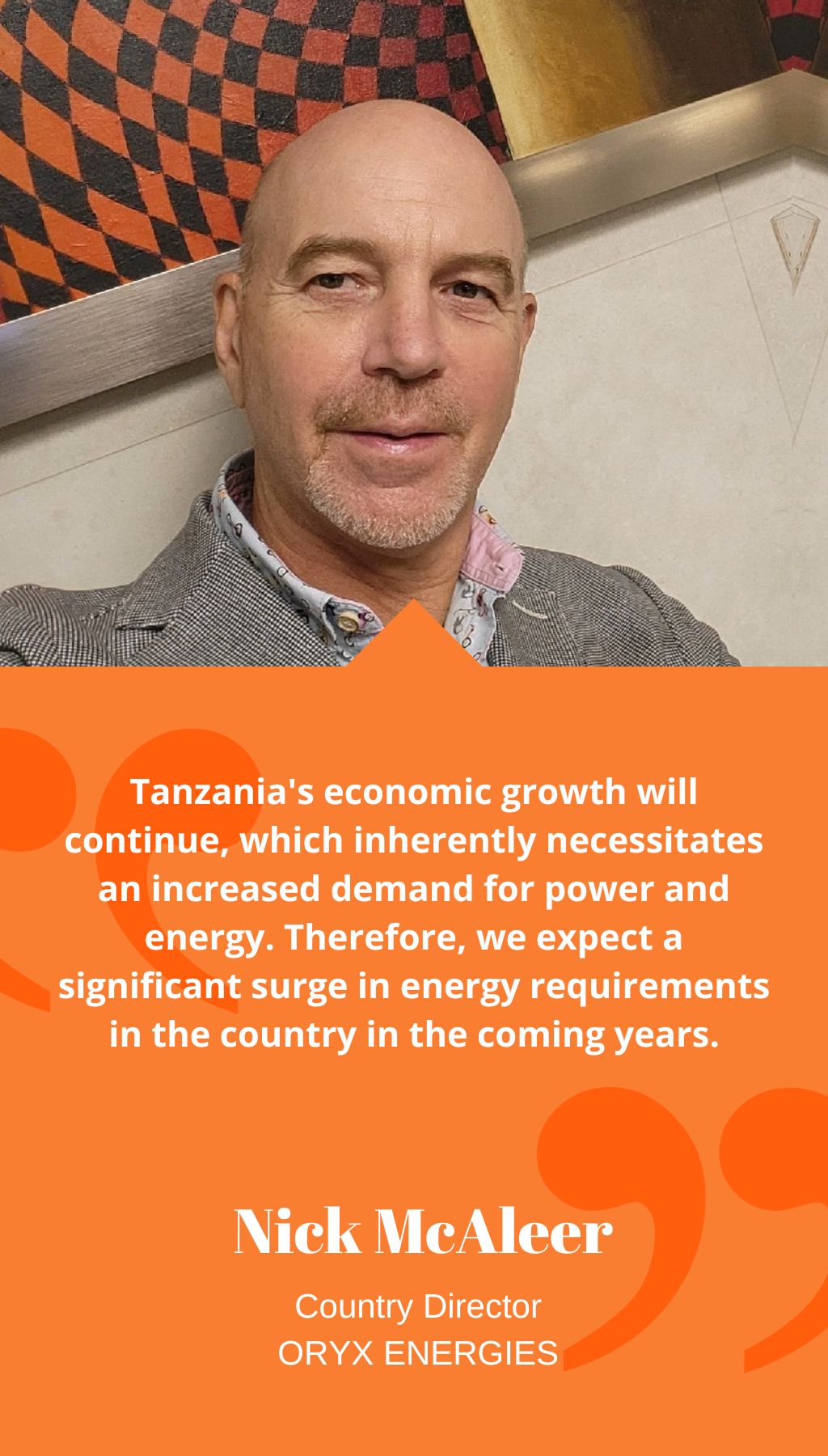
- Tanzania | 9 April 2018

Can you explain the strategies employed by Oryx Energies to sustain the company’s development?
Oryx Energies has been investing in Tanzania since 1999, focusing on providing oil products and services. In recent years, we have significantly increased our investments in the country, amounting to over TZS 100 billion across various product and service areas, including fuels, LPG, and lubricants. One of our contributions to combating counterfeit and illegal products is the establishment of franchised Oryx Energies stores. These outlets offer genuine LPG and lubricants, providing customers with assurance regarding the authenticity of the products. Through these investments, we aim to ensure a reliable supply of high-quality products to consumers throughout Tanzania, spanning urban and rural areas. We recognize the immense potential for fuel and lubricants in Tanzania’s growing economy, as well as the opportunity to utilize Dar es Salaam as a transit hub to supply neighboring countries. LPG is a particular focus for us, as we have been advocating for its use as a clean, safe, efficient, and eco-friendly alternative to charcoal and firewood in Sub-Saharan Africa for over 15 years. By the end of 2016, we will complete the largest single LPG storage sphere in Tanzania, and we have also constructed the country’s first LPG cylinder revalidation plant.
How do you perceive the government’s role in regulating the industry?
The government in Tanzania plays a crucial role in regulating the petroleum industry, which, in turn, leads to greater efficiency, reduced prices, improved standards, and a decline in poor business practices, ultimately benefiting consumers. In 2006, the government established the Energy Water Utilities Regulatory Authority (EWURA), which is responsible for regulating the petroleum industry by setting industry standards, rules, and regulations, and ensuring a level playing field for all oil-marketing companies. An important step taken by EWURA in 2011 was the introduction of a Bulk Procurement System for fuel products. This initiative resulted in a drop in import premiums and significant improvement in vessel waiting times, leading to a substantial reduction in demurrage costs and ultimately lowering fuel prices at the pump. As a result, fuel prices in Tanzania are now more affordable compared to neighboring countries.
What is your outlook for the energy sector’s development and Oryx Energies’ role in it?
Tanzania’s economic growth will continue, which inherently necessitates an increased demand for power and energy. Therefore, we expect a significant surge in energy requirements in the country in the coming years. Tanzania possesses abundant mineral deposits and natural gas resources, and it also demonstrates a strong commitment to developing industries, agriculture, and improving the lives of its population. The current government is actively working to promote more affordable energy through the Tanzania Electric Supply Company (TANESCO), as well as exploring wind, solar, geothermal, and LNG sources. However, given the ongoing growth in energy demand and the limited availability of alternative sources, fossil fuels will remain important for the foreseeable future.
What are your goals and expectations for Oryx Energies in 2017?
In 2017, we aim to leverage our recent investments, which position us favorably to ensure the widespread availability of fuels, LPG, and lubricants across the country. Accessibility and product quality are pivotal for development, and we are committed to delivering both. Furthermore, we anticipate benefiting from the government’s commitment to fostering a fair business environment and encouraging private sector investment. In terms of LPG, we will contribute to efforts aimed at reducing the use of firewood and charcoal, thereby combating deforestation and lowering greenhouse gas emissions. Oryx Energies is fully prepared to cater to the energy needs of emerging industries and the general population. Our commitment to Tanzania’s future involves continued investment, job creation, and the promotion of entrepreneurship.














